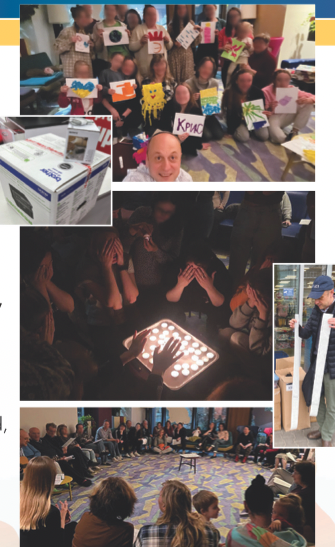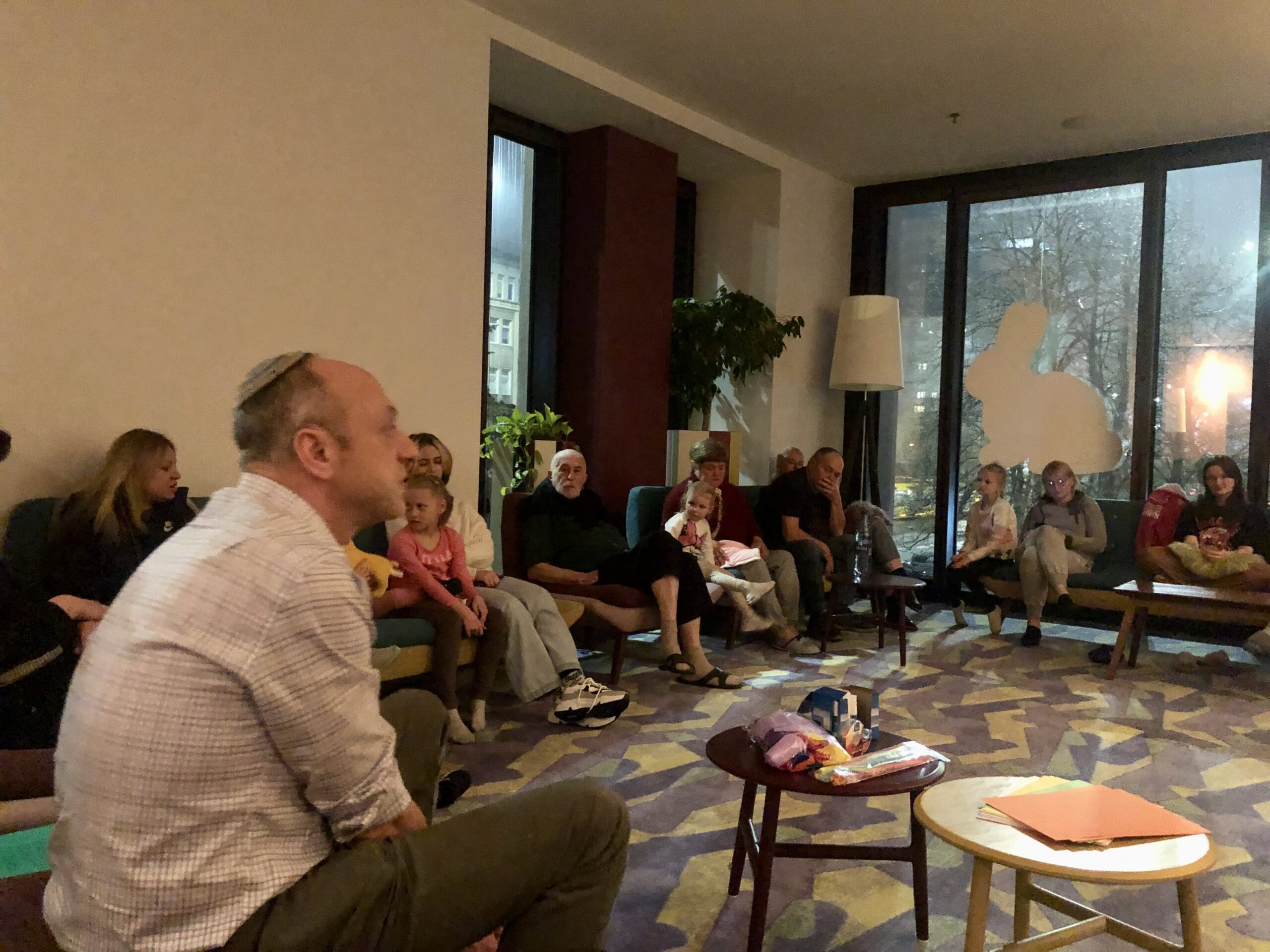
As many of you know, I have just returned from spending a week in Poland as a volunteer. The Jewish Federations of North America (JFNA) and American Jewish Joint Distribution Committee (JDC) had asked for Russian and Ukrainian speaking clergy to travel to Poland, Hungary and Moldova to support the Jews fleeing war in Ukraine, to help them celebrate Passover, and lift their spirits. I have spent a week on the ground, visiting multiple refugee centers, running programs for adults, playing with kids, sharing simple meals, and listening to stories. I have also tried, as much as I could, to offer some support to the volunteers and professionals on the ground, helping to run the response to this humanitarian crisis unprecedented in Europe since WWII.
Armed with a credit card and your incredible generosity, I also went shopping multiple times in different towns for clothing, shoes, medications, general supplies, washing powder, plates and cups, toilet paper, snacks and sweets and treats, board games for kids and adults, shampoo and body wash, handheld tablets and a printer/scanner; not to mention the small toys, clothing and art supplies that were collected prior to my departure – each center had their own needs, and I followed the lead of the local volunteers. The needs are great and varied, and while all of this is but a drop in the ocean, every little helps.
Most of my time was spent in the safety and relative calm of hotels and residential centers – with few exceptions, most people had escaped the war weeks ago, and had a chance to recover from the ordeals of bomb shelters and crammed trains and walking, sometimes for days, across the border. One could easily be fooled by the “normalcy” of our interactions, but most of it was paper-thin, as people clutched their phones, checking in regularly with their loved ones who were left behind – some in the army and territorial defense units, others (especially men 18-60) simply unable to leave the country. The news and personal stories came flooding in, people hearing from friends and neighbors, anxious and desperate for some good news. There was a lot of waiting and trying to figure out what comes next: do they wait for the war to end and go home, do they have family they can join elsewhere in the west, or is it time to consider a more permanent form of immigration?
Most of the volunteers and coordinators of this work, as well as psychologists working to help people cope with all this trauma, are themselves refugees! Two months ago, all of these people have lived comfortable and modern lives – they had jobs, and homes, and families. They were college students and professionals; their lives subject to normal challenges and tensions. Some were better off than others, of course; some lived in big cities and others in small towns and villages; some relied on public transport and others owned big homes and comfortable cars; some worked two jobs and some went on regular family vacations. Most had mere hours to pack; some didn’t even get a chance to go home – when the bombs started falling, people ran for safety. All of the stories of people running from war and violence with nothing but a shirt on their backs were no longer the stuff of family lore – these are the stories of today. A young mother entertains a cutie pie 1-year-old boy (who is so sweet and smiles a lot!) – and I am suddenly overwhelmed by the generational trauma, thinking back to my father as a 1-year-old, headed east on a train in 1941, never to see his father alive again… I smile and offer some support, and a small toy – and I pray that this boy and his family are kept safe from harm.
I am struck by the resilience of the people who can put aside their own trauma and go help others – it’s easier to navigate your own uncertainty when you are busy helping someone else.
I get a chance to celebrate Shabbat with this multitude of people – Jews, non-Jews, some joyfully singing along to familiar melodies, others encountering Shabbat and any form of Jewish observance for the first time. I can sense that there is a small measure of comfort and spiritual support that people receive from our gathering, and I am grateful for the opportunity to be there for them – and for myself. I return home, to my family and to TE, grateful for the opportunity to serve, knowing that I will carry these stories with me for the rest of my life.
